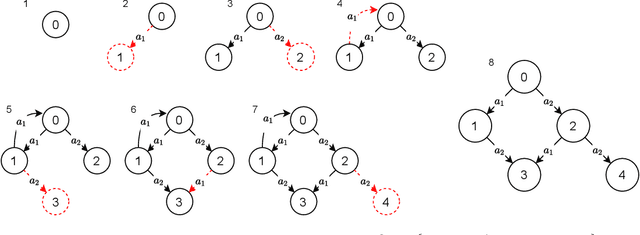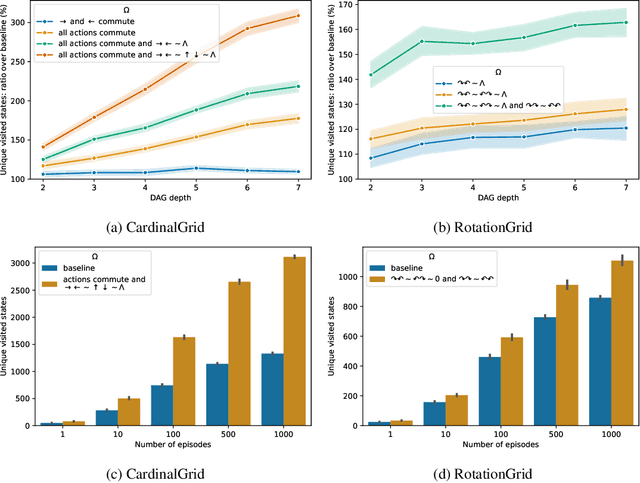Toby Johnstone
More Efficient Exploration with Symbolic Priors on Action Sequence Equivalences
Nov 07, 2021



Abstract:Incorporating prior knowledge in reinforcement learning algorithms is mainly an open question. Even when insights about the environment dynamics are available, reinforcement learning is traditionally used in a tabula rasa setting and must explore and learn everything from scratch. In this paper, we consider the problem of exploiting priors about action sequence equivalence: that is, when different sequences of actions produce the same effect. We propose a new local exploration strategy calibrated to minimize collisions and maximize new state visitations. We show that this strategy can be computed at little cost, by solving a convex optimization problem. By replacing the usual epsilon-greedy strategy in a DQN, we demonstrate its potential in several environments with various dynamic structures.
 Add to Chrome
Add to Chrome Add to Firefox
Add to Firefox Add to Edge
Add to Edge